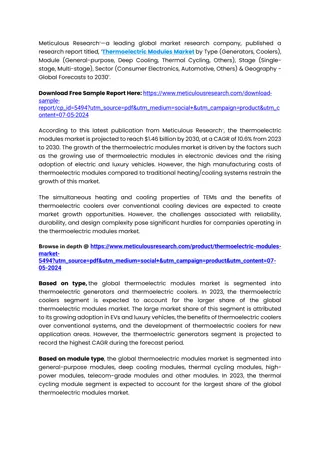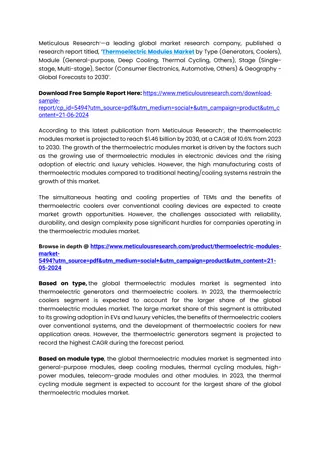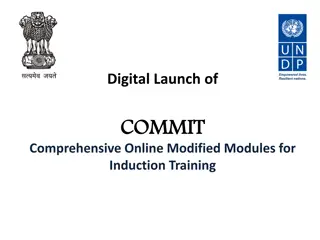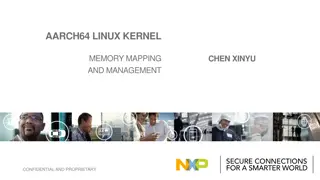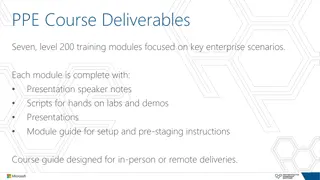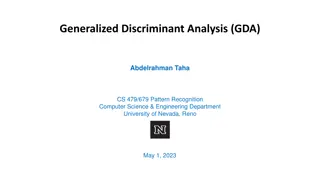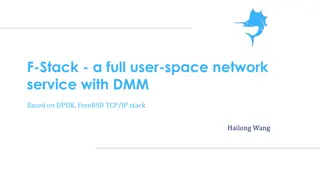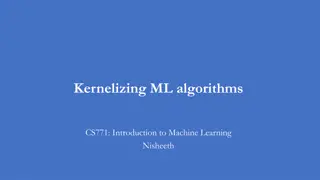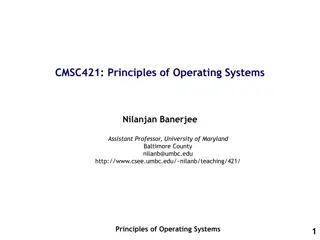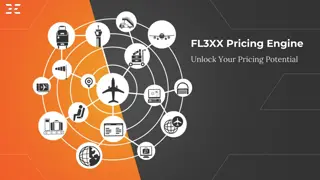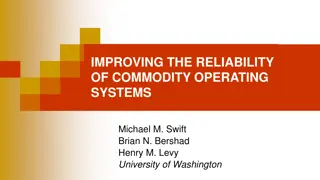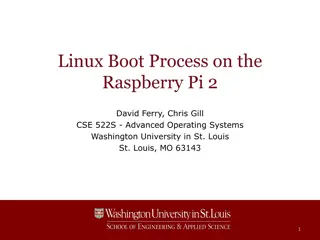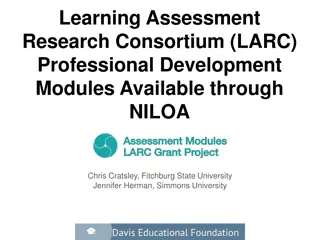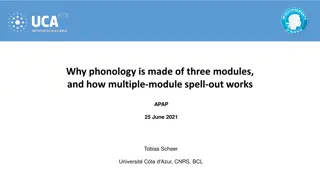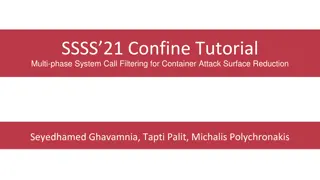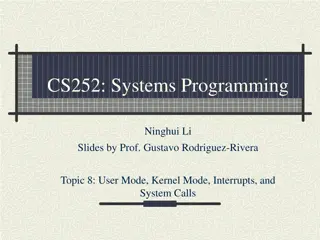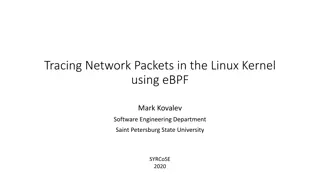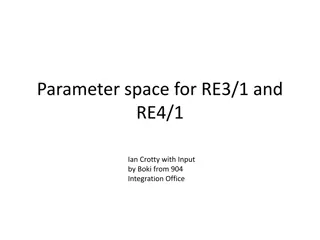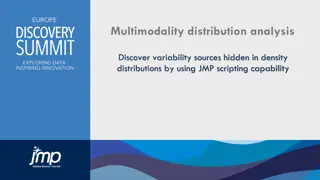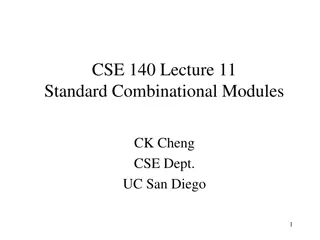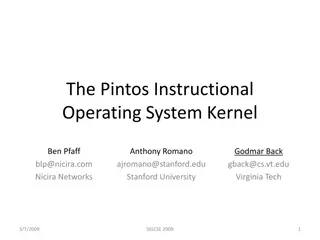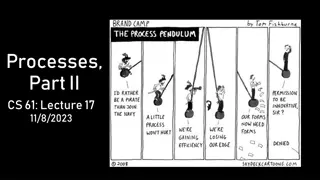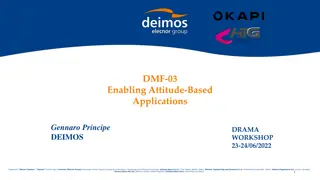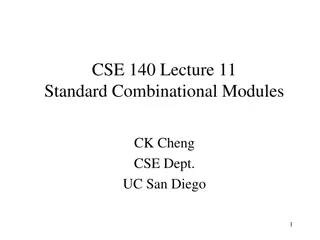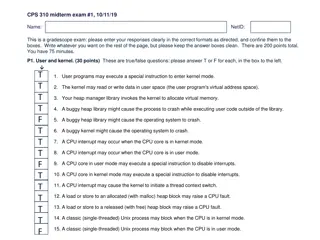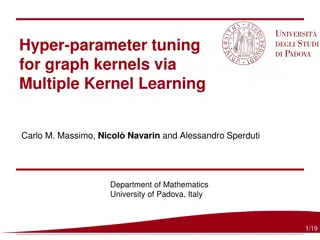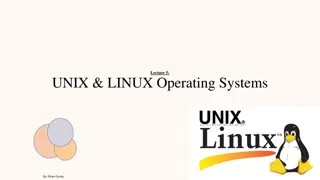Advanced Data Handling Architecture (ADHA): Status, Current Activities and Industrial Road Map
The Advanced Data Handling Architecture (ADHA) program aims to deliver a new generation of Platform and Payload Data Handling units by 2025, utilizing standardized, interoperable modules from various suppliers. The program targets significant improvements in spacecraft development time, cost efficie
0 views • 18 slides
Thermoelectric Modules Market
In terms of volume, the thermoelectric modules market is projected to reach 12,62,61,159.9 units by 2030, at a CAGR of 11.4% from 2023 to 2030. The growth of the thermoelectric modules market is driven by factors such as the growing use of thermoelectric modules in electronic devices and the rising
2 views • 3 slides
Thermoelectric Modules 2
thermoelectric modules market is projected to reach 12,62,61,159.9 units by 2030, at a CAGR of 11.4% from 2023 to 2030. The growth of the thermoelectric modules market is driven by factors such as the growing use of thermoelectric modules in electronic devices and the rising adoption of electric & l
3 views • 3 slides
Wuxi GSPV New Energy Co., Ltd. - Leading Provider of High-quality Solar Modules
Wuxi GSPV New Energy Co., Ltd. is a reputable company established in 2002, specializing in high-quality solar modules for residential rooftops and large-scale projects. Their product range includes PERC, TOPCon, and HJT solar modules, offering clean and sustainable energy solutions with significant
0 views • 14 slides
Thermoelectric Modules Market
The growth of the thermoelectric modules market is driven by factors such as the growing use of thermoelectric modules in electronic devices and the rising adoption of electric & luxury vehicles.
1 views • 3 slides
Biology Program Modules and Course Selection Process
Explore the Biology Program at your institution, offering modules in Honors Specializations, majors, and minors like Animal Behavior, Genetics, and more. Learn about accessing Honors Modules, choosing courses, and the differences between Double Major and Honors Specialization. Get ready to register
0 views • 13 slides
COMMIT: Comprehensive Online Modified Modules for Induction Training
The COMMIT program aims to enhance public service delivery, promote good governance, and provide induction training to frontline government functionaries. It offers a blend of face-to-face and e-learning modules covering soft skills and domain-specific topics. Currently being piloted in six states,
1 views • 6 slides
AARCH64 Linux Kernel Memory Management
Explore the confidential and proprietary details of AARCH64 Linux kernel memory mapping, virtual memory layout, variable configurations, DDR memory layout, and memory allocation techniques. Get insights into the allocation of physically contiguous memory using Continuous Memory Allocator (CMA) integ
0 views • 18 slides
Microsoft Azure Training Modules by Opsgility
Explore seven level 200 training modules by Opsgility focused on key enterprise scenarios in Microsoft Azure. From introduction to virtual machines, networking, active directory, cloud services, SQL server, to management and monitoring, these modules provide comprehensive hands-on learning experienc
1 views • 5 slides
Generalized Discriminant Analysis (GDA) in Pattern Recognition
Generalized Discriminant Analysis (GDA) is a nonlinear form of Linear Discriminant Analysis (LDA) that utilizes kernel methods to find discriminatory features for optimal class separability. LDA aims to maximize the between-class covariance matrix while minimizing the within-class covariance matrix.
2 views • 17 slides
Optimizing User-Space Network Services with F-Stack and FreeBSD TCP/IP Stack
F-Stack, a user-space network service using DPDK and FreeBSD TCP/IP stack, addresses challenges in handling service traffic like CDN and live streaming. By leveraging 25GbE, 40GbE, and 100GbE NICs, coupled with multi-core CPUs and kernel bypass techniques, F-Stack overcomes bottlenecks between user
2 views • 17 slides
Kernel Tricks in Machine Learning
Kernel tricks in machine learning involve transforming inputs into higher-dimensional spaces to make linear models work for nonlinear data. Kernels can be applied to various algorithms like SVM, ridge regression, and more, allowing for better model performance with complex datasets.
1 views • 15 slides
Fundamentals of Operating Systems Explained
Explore the core concepts of operating systems, including kernel-userspace interactions, system calls, context switching, and virtual memory management. Delve into x86 assembly for system calls, hardware interrupts, and the flow of control during system call invocations. Gain insights into key compo
8 views • 19 slides
Optimize Your Pricing Strategy with FL3XX Pricing Engine Modules and Rules
Customize your pricing items and define modules to tailor your pricing engine to unique requirements. Set conditions for specific pricing items based on a wide range of factors, ensuring tailored pricing for your business needs. Utilize rules to bridge modules and quotes, applying modules with corre
0 views • 6 slides
Development of Insecticide-Treated Nets (ITNs) and Guidance Modules for Prequalification Decision Making
Insecticide-Treated Nets (ITNs) for vector control are undergoing prequalification with additional guidance modules for decision-making. These modules cover various aspects such as study protocol preparation, statistical analysis, manufacturing specifications, quality control, efficacy assessment, a
0 views • 8 slides
Improving the Reliability of Commodity Operating Systems
This research paper discusses the challenges and solutions in enhancing the reliability of commodity operating systems by addressing system failures caused by kernel extensions. The Nooks approach isolates extensions within protection domains, allowing them to reside in the kernel address space with
0 views • 40 slides
Raspberry Pi 2 Boot Process Overview
Raspberry Pi 2's boot process involves a series of stages initiated by the GPU, loading essential firmware and enabling hardware components gradually, leading to the activation of the CPU and the kernel's entry point. The system transitions through various low-level processes before reaching a stabl
0 views • 9 slides
Changes to IIA Qualifications and Tuition Programmes
The International Internal Auditors (IIA) is making changes to its qualifications and tuition programmes, phasing out the IIA Diploma and introducing the Certified Internal Auditor (CIA) and Qualification in Internal Audit Leadership (QIAL). Transition arrangements are in place for current students,
1 views • 14 slides
Learning Assessment Research Consortium (LARC) Professional Development Modules
Explore the professional development modules offered by the Learning Assessment Research Consortium (LARC) available through NILOA. The modules cover various aspects of assessment benefits, barriers, data utilization, and sustainable practices, providing valuable insights for educators. Gain access
0 views • 10 slides
The Three Modules of Phonology and Multiple-Module Spell-Out Systems
Phonology is structured into three modules - Sonority, Laryngeal, and Place - each with its own vocabulary and skeleton for computation. These modules interact in multiple-module spell-out systems to map linguistic structures onto phonetic realizations. Sonority, involving the audibility of linguist
0 views • 67 slides
Multi-phase System Call Filtering for Container Security Enhancement
This tutorial discusses the importance of multi-phase system call filtering for reducing the attack surface of containers. It covers the benefits of containerization, OS virtualization, and the differences between OS and hardware virtualization. The tutorial emphasizes the need to reduce the kernel
0 views • 32 slides
User Mode, Kernel Mode, Interrupts, and System Calls in Computer Architecture
In modern computers following Von Newman Architecture, programs and data are stored in RAM. The CPU, RAM, ROM, and devices communicate via address and data buses. The system operates in both kernel and user modes, where kernel mode allows full system control, while user mode restricts access for sec
0 views • 29 slides
Tracing Network Packets in Linux Kernel with eBPF
This presentation discusses the challenges of troubleshooting modern networking systems and proposes a solution using eBPF technology to trace the path of network packets in the Linux kernel. The goal is to develop a tool that provides detailed information about how network packets are processed in
0 views • 16 slides
Enhancing Care Quality with Skills for Care Online Resources
Skills for Care offers a comprehensive range of practical guidance and learning modules to help healthcare providers meet or exceed CQC expectations for delivering Good or Outstanding care. The resources include free online guides, practical seminars, and virtual learning modules focusing on various
0 views • 6 slides
Music and Dance BA Arts LM002 Program Overview
Studying Music and Dance as part of the LM002 Bachelor of Arts program involves academic modules covering various genres such as classical music, ballet, contemporary dance, Irish music, and more. Students can also explore vocational areas like performing arts technology and music education. The pro
0 views • 5 slides
Analysis of Parameter Space for RE3/1 and RE4/1 Modules
Explore the intricate designs and dimensions of RE3/1 and RE4/1 modules, including mounting posts, cross-section details, envelopes, and verification processes. The study emphasizes the need for detailed analysis and production of accurate envelopes for these modules. Key considerations include spac
0 views • 9 slides
Update on AMRI Meeting - December 2018 and Training Modules Overview
The AMRI meeting held on 4th December 2018 covered various topics including introductions, review of NBSCCCI work, guidance updates, upcoming training sessions, and progress updates on safeguarding modules. The meeting highlighted the importance of child safeguarding policies, historical context, th
0 views • 27 slides
Analyzing Multimodality in Density Distributions Using JMP Scripting
Explore variability sources hidden in density distributions through JMP scripting. The analysis focuses on identifying and filtering distribution modes in semiconductor fab electrical measurements using kernel estimation and empirical rules. Antonio D'Angelo and Felice Russo from Lfoundry S.r.l. Ita
0 views • 6 slides
Remote Procedure Call (RPC) in Different Kernel Environments
Communication through Remote Procedure Call (RPC) plays a crucial role in facilitating seamless interaction between server and client processes, whether on the same machine or across different kernels. This technology streamlines local and cross-domain communication, optimizing performance while ens
0 views • 9 slides
Standard Combinational Modules in Digital Design
Introduction to standard combinational modules such as decoders, encoders, multiplexers (Mux), demultiplexers (DeMux), shifters, adders, and multipliers. Exploring their behaviors, logic, and applications in signal transport, data processing, and address manipulation. Detailed explanation of how dec
0 views • 26 slides
Overview of the Pintos Instructional Operating System Kernel Project
Description of the Pintos Operating System Kernel project, including its use in educational settings at institutions such as Stanford University and Virginia Tech. The project aims to provide students with a hands-on experience in OS design, focusing on the internal workings of the kernel. Pintos fe
0 views • 33 slides
Pipes in Process Communication
Pipes in process communication allow for high-throughput data transfer between parent and child processes. The kernel creates a communication stream through file descriptors, enabling one process to send data to another. Processes can use pipes for efficient inter-process communication, with the ker
1 views • 15 slides
Advanced Attitude-Based Applications and Simulation Framework
This content details the development and integration of a 6-DOF simulator for enhancing analysis modules used in debris mitigation and risk assessments within the aerospace industry. It focuses on upgrading software modules, incorporating attitude dynamics, improving disposal analyses for movable pa
0 views • 11 slides
Standard Combinational Modules in Digital Design
Delve into the realm of standard combinational modules with a focus on decoders, encoders, multiplexers, demultiplexers, and other essential components. Explore their behavior, logic, and applications in signal transportation, addressing, data manipulation, and processing within digital systems. Gai
0 views • 26 slides
Advanced Configurable Analog I/O Modules for Automation Systems
Explore a range of onboard analog I/O modules including BX10, BX18, and BX36 series, each offering high-speed discrete inputs and outputs along with analog input and output options. These modules are fully configurable with flexible voltage and current ranges. Additionally, learn about the new memor
0 views • 7 slides
User and Kernel Modes in Operating Systems
The content provided discusses various aspects of user and kernel modes in operating systems through a set of true/false questions related to user programs, CPU interrupts, heap management, and process behavior in different modes. It touches on the role of the kernel in managing virtual memory, hand
0 views • 10 slides
Enhancing Data Literacy Through Engaging Modules and Lessons
In this content, John Gensic, a Dual Credit Biology student at Ivy Tech, and Penn High School, participates in modules aiming to explore and create data representations to support evidence-based claims. The overall goal is to foster critical thinking by evaluating various data sets and making eviden
0 views • 32 slides
Hyper-Parameter Tuning for Graph Kernels via Multiple Kernel Learning
This research focuses on hyper-parameter tuning for graph kernels using Multiple Kernel Learning, emphasizing the importance of kernel methods in learning on structured data like graphs. It explores techniques applicable to various domains and discusses different graph kernels and their sub-structur
0 views • 20 slides
Overview of UNIX and Linux Operating Systems
The UNIX brand encompasses a range of powerful multitasking, multiuser operating systems used by various organizations to develop IT technologies. UNIX internals consist of kernel space and user space, with programs accessing system services rather than hardware directly. The Unix filesystem is a ke
2 views • 36 slides
Context Switching and User-Kernel Interaction in Operating Systems
Context switching in operating systems involves a seamless transition between user-level threads without the kernel's awareness. User-level code manages register state and stack pointers, while user-kernel mode switching requires changing processor privilege levels and agreement on information excha
1 views • 25 slides


